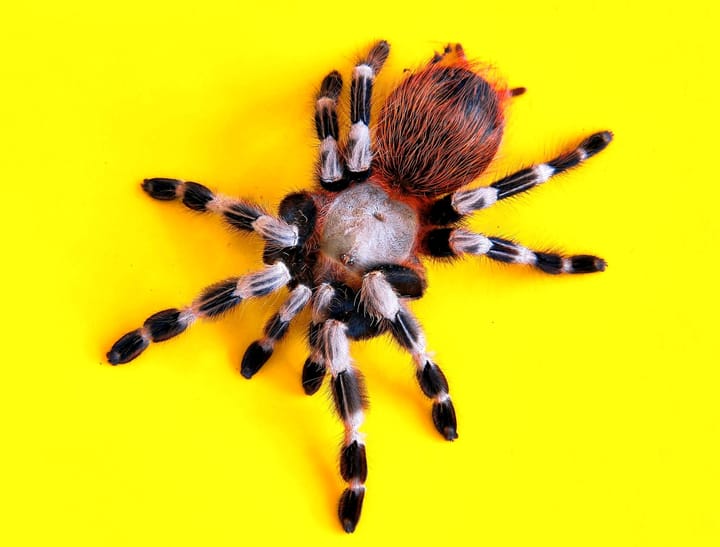How on earth is the brain involved in itching?

Yes, there is neuroscience in the skin and yes, there is a Brain-Skin axis.
That nervous system seems to pop up everywhere, and recent research shows how the nervous system is deeply involved in - and can amplify the itching.
More than just a skin condition
One of the most common causes of serious itching is chronic urticaria, a skin condition affecting around 4.4% of people at some point in their lives. This condition causes recurring intense, itchy welts and deep skin swelling that lasts for weeks, significantly disrupting daily life.
It doesn’t just affect the skin—it can impact multiple body systems, including the heart, lungs, digestive organs, muscles, and even the brain.
There are two main types of chronic urticaria. Some cases are triggered by specific factors like medications, physical stimuli (such as cold, heat, or pressure), or stress. This is called chronic inducible urticaria. Other cases appear without a clear cause, a form known as chronic spontaneous urticaria.
Both types are linked to immune system imbalances. The disease shares similarities with other inflammatory diseases, such as atopic dermatitis, where immune cells and sensory neurons interact to intensify symptoms.
But how do these two systems affect each other?
The immune-nervous system connection
Our immune system plays a critical role in urticaria. Histamine, the primary mediator in urticaria, is released from mast cells.
It acts directly on histamine receptors found on sensory nerve endings. This activation leads to the rapid transmission of itch signals to the spinal cord and brain.
In addition to histamine, non-histamine itch pathways involving other immune molecules such as interleukins and prostaglandins, further contribute to persistent itching. Many patients with chronic urticaria experience severe symptoms despite antihistamine treatment, suggesting that these alternative pathways play a significant role.
The more a person scratches, the worse the problem becomes. Scratching damages the skin, triggering even more activation of the immune system, histamine release, inflammation, and swelling.
And all these chemical messengers can enhance nerve sensitivity.
How the nervous system responds to chronic itching
The skin contains a huge network of sensory nerves that communicate with immune cells. When the itching and inflammation in the skin have gone on for a while, the nervous system itself may become hypersensitive, amplifying itch signals.
This process, known as "sensitization," happens both in the nerves of the skin (peripheral sensitization) and the spinal cord and brain (central sensitization).
In central sensitization, the itching leads to changes in the brain, weakening its ability to regulate and suppress itch signals. When this occurs, the itch response becomes exaggerated, and normal touch or mild irritation can feel intensely itchy. That process is quite similar to the sensitization we see in chronic pain.
Another key player is a group of nerve cells, that specialize in detecting itch signals. These neurons become more active in people with chronic urticaria, making itching even more intense and persistent.
These neurons respond not only to mediators like histamine but also to mechanical and thermal stimuli, which may explain why patients report heightened skin sensitivity even without visible wheals.
Itching on your mind
Neuroimaging studies have shown that the brains of individuals with chronic itch conditions have increased activity in regions responsible for sensory perception, emotion, and motor control.
The sensory cortex, which processes the interpretation of touch and itch, becomes hyperactive. The anterior cingulate cortex and insula, areas associated with emotional responses, also show heightened activation.
The brain’s reward system, which involves the release of dopamine, may contribute to the urge to scratch. Dopamine is a brain chemical that increases motivation and induces pleasure. It plays a key role in feeling happy and forming habits.
Some studies suggest that scratching can activate pleasure-related areas of the brain, creating an addictive-like cycle where people scratch even though it worsens their condition.
The brain’s reward system plays may also a role in the compulsive scratching behavior seen in chronic urticaria. Scratching temporarily suppresses itch signals by activating pain pathways, which compete with itch signals in the spinal cord.
However, this relief is short-lived and can reinforce the urge to scratch, creating a cycle of worsening symptoms. This cycle can be extremely difficult to break.
The psychological side of chronic urticaria
The relationship between chronic urticaria and mental health is strong - and psychological stress is a well-established trigger and exacerbating factor in chronic urticaria. Mental stress can fuel inflammation in several ways.
The sympathetic nervous system, responsible for the "fight or flight" response, releases stress hormones, such as cortisol, that can influence immune function and nerve activity.
Besides cortisol, studies have shown that individuals with chronic urticaria tend to have higher levels of other stress-related chemicals in their bodies too. These substances can increase nerve fiber growth in the skin, making it more sensitive to itching. They can also promote vasodilation and increase skin inflammation.
In the short term, stress hormones help the body cope with challenges. On the other hand, prolonged stress disrupts the immune balance and makes the nervous system more reactive.
The Itchy & Scratchy show - all night
Sleep problems are another common issue in chronic urticaria.
The circadian rhythm (driven by the brain's pineal body) influences histamine release, with peak levels occurring naturally at night. This may explain why symptoms often intensify in the evening, leading to difficulty falling and staying asleep.
Sleep deprivation increases stress levels and lowers pain tolerance. It has been shown to increase activity in the insula and amygdala parts of the brain, regions linked to emotional distress.
Patients often find themselves caught in a cycle where poor sleep leads to worsening symptoms, which then disrupt sleep even more. Because of this, improving sleep quality is an essential part of managing the condition.
To sum it up
The nervous system plays a central role in chronic urticaria through multiple mechanisms, including peripheral nerve sensitization, central nervous system hyperactivity, stress-related release of chemicals, and sleep disturbances.
Well, I guess that explains why chronic itching is kind of a disease of the nervous system.
About the scientific paper:
First author: Shurui Yang, China
Published: Journal of Neuroinflammation, March 2025
Link to paper: https://jneuroinflammation.biomedcentral.com/articles/10.1186/s12974-025-03397-4




Comments ()